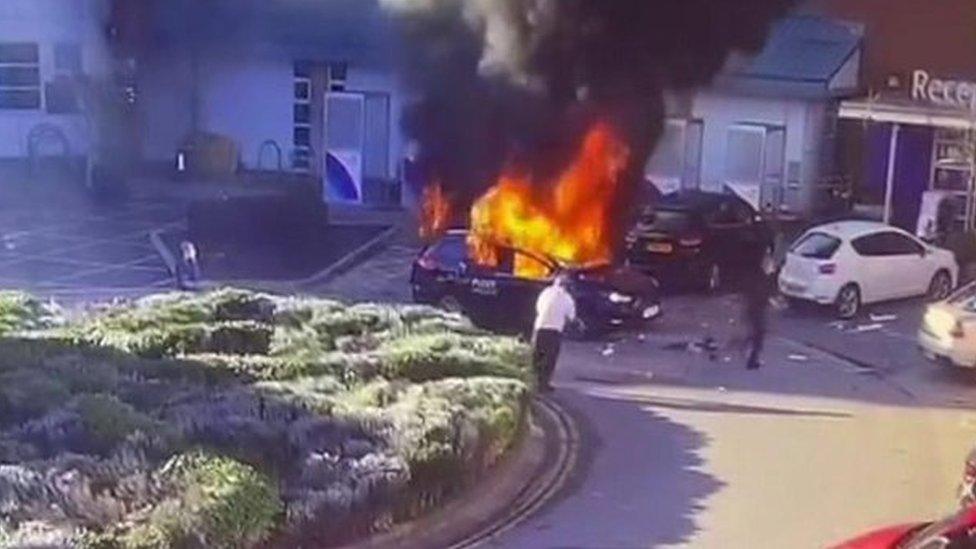Liverpool bomber made device with murderous intent, coroner says
- Published
Watch: The cab pulled up outside Liverpool Women's Hospital and exploded into flames
The Liverpool bomber died from an explosion and fire caused by a device he manufactured with "murderous intent", a coroner has ruled.
Emad Al Swealmeen was killed when his bomb went off while he was inside a taxi at Liverpool Women's Hospital.
Senior coroner Andre Rebello said it was unclear whether he intended the device to detonate when it did.
The inquest heard Al Swealmeen rang his brother two days before he died and suggested he might do "something bad".
Iraqi-born Al Swealmeen, 32, was a passenger in the taxi when the bomb went off at 10:59 GMT on 14 November.
The driver, David Perry, was taken to hospital but did not suffer life-threatening injuries.
Recording a narrative conclusion at Liverpool and Wirral Coroner's Court, Mr Rebello said Al Swealmeen made the bomb at a flat he had rented in Rutland Avenue, near Sefton Park in Liverpool.
"It is found he manufactured the improvised explosive device, designed to project shrapnel, with murderous intent," he added.
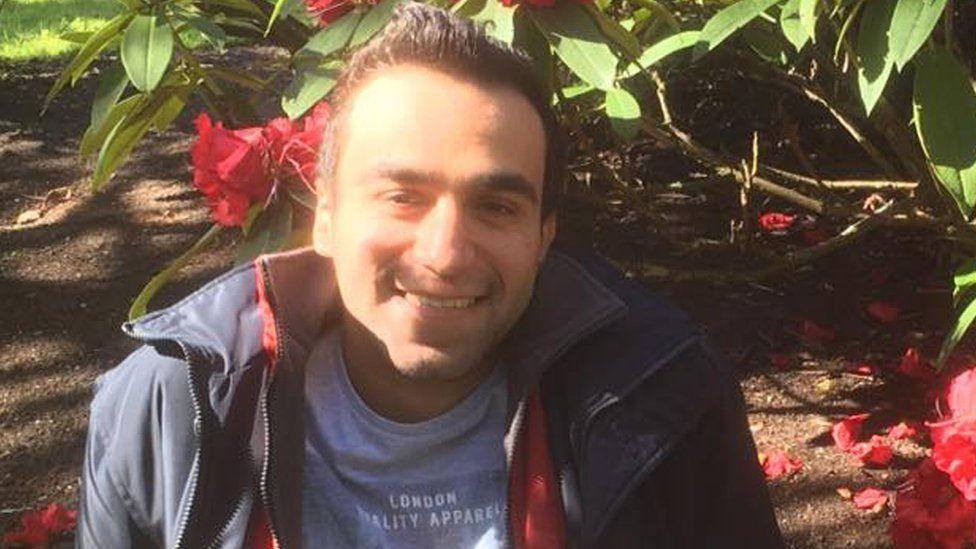
Emad Al Swealmeen was the passenger in a taxi which was destroyed by his bomb
The inquest heard Al Swealmeen was a resident at premises provided by the Home Office in Sutcliffe Street, in the Kensington area of Liverpool.
But since April he had rented a self-contained flat in Rutland Avenue where he paid the rent monthly in cash.
Det Ch Insp Andrew Meeks, the senior investigating officer in the case, said it was accurate to describe the flat as a "bomb-making factory".
He said there was no evidence to suggest anyone else had been involved with the procurement of materials, including 2,000 ball bearings, or construction of the device but investigations were continuing.
The inquest heard the explosion on Remembrance Sunday propelled ball bearings forward into the taxi to the extent the front windscreen was forced out and travelled 52ft (16m), where it hit a tree.
There was also damage to some of the windows of the hospital, the hearing was told.
Al Swealmeen was identified by records held on a police system, and a forensic pathologist found the cause of death was the effects of an explosion with fire.
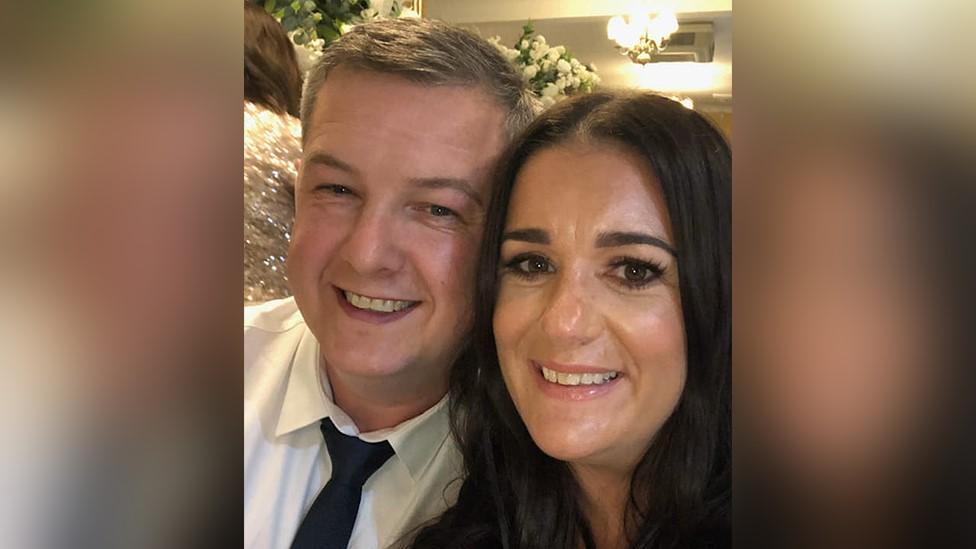
David Perry, pictured with his wife Rachel, was injured in the blast
The inquest heard that when Al Swealmeen got in a rear passenger seat in the taxi the only words he spoke were "women's hospital".
Taxi driver Mr Perry stopped outside the front entrance, where he was thrown forwards by the blast and blacked out for a couple of seconds.
"As his car came to a stop he didn't notice anything unusual, no warning, no movement from the passenger, just the blast," Mr Rebello said.
"He described the journey as non-eventful, saying if the bomb hadn't gone off he wouldn't have remembered anything about the journey."
The coroner said when Mr Perry regained consciousness he felt burning to his back and managed to stagger out of the car.
"He could see smoke and smell burning plastic and the smell of burning body and thought 'I'm dead if I don't get out'," Mr Rebello added.
Mr Perry suffered three fractures to the bottom of his back and damage to his eardrums.
"I suppose he is probably one of the unluckiest taxi drivers around and yet possibly one of the luckiest given what could have been," Mr Rebello said.
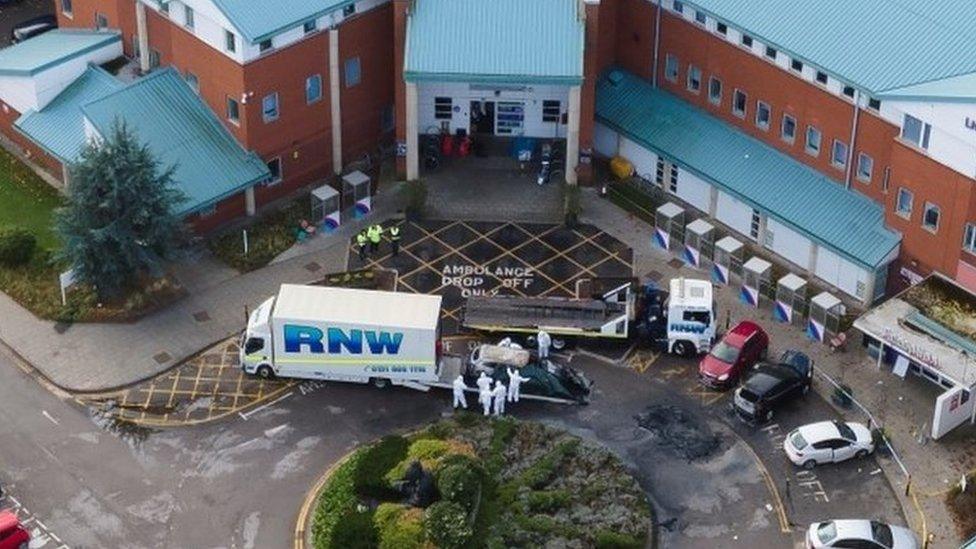
The taxi was removed from outside the hospital several days after the blast
The inquest heard Al Swealmeen rang his brother, who lives in America, on 12 November - two days before the blast.
Mr Rebello said: "He says towards the end of call Emad said something like 'if I do something bad that will affect the family what do you think?'
"He replied something like 'don't do [anything]', advising him as an older brother, although this was something which caused him concern, knowing his previous issues."
Al Swealmeen had been in prison in the Middle East for a serious assault on another person, as well as being in trouble in Liverpool previously for possession of an offensive weapon, the inquest heard.
He had also been assessed under the Mental Health Act in a five-month period in 2015 and in August was prescribed medication for low mood by his GP, the hearing was told.
Det Ch Insp Meeks confirmed Al Swealmeen was not on the radar of security services.
Mr Rebello said: "One thing that struck me was this lone actor from a disrupted family, with a bit of a chaotic background, could well have killed many, many innocent people and there doesn't appear to have been any opportunity to have detected this was about to happen."
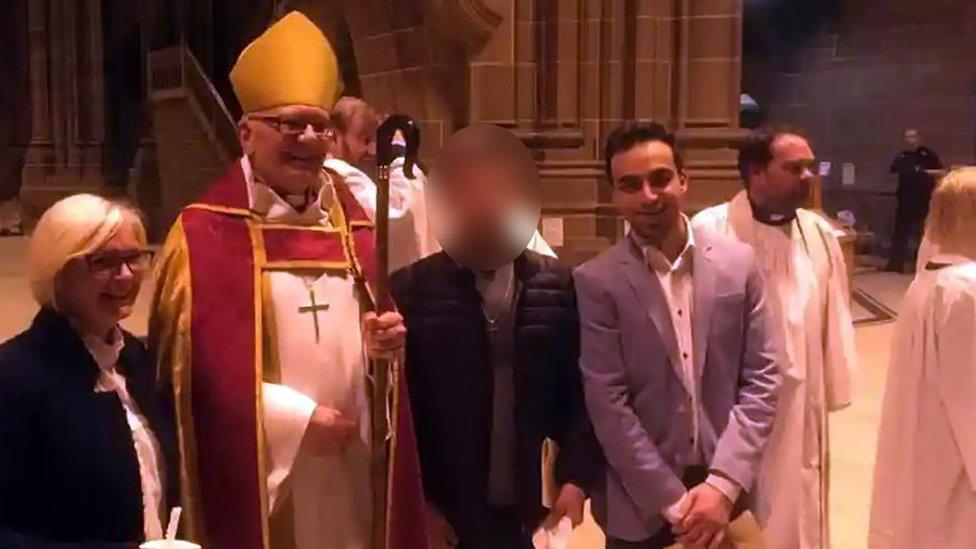
Emad Al Swealmeen (on right in light grey jacket) during a service at Liverpool's Anglican Cathedral, alongside the bishop Right Reverend Cyril Ashton
Al Swealmeen came to the country legally in May 2014 with a Jordanian passport and UK visa, the inquest heard.
Mr Rebello said: "Shortly after his arrival he claimed, it is believed falsely, that he was of Syrian heritage and claimed asylum as a refugee from that country."
He said that claim and all subsequent claims for asylum were refused, with the latest refusal in November 2020.
Mr Rebello said there had been reports Al Swealmeen had rejected Islam and converted to Christianity.
Det Ch Insp Meeks agreed with the coroner that he might have converted to strengthen his asylum claim.
The inquest heard a Koran and prayer mat were found when police searched his premises.
Mr Rebello said: "It was fairly evident that he carried out the religious duties of someone who is a follower of Islam, not withstanding the reported conversion to Christianity."

Why not follow BBC North West on Facebook, external, Twitter, external and Instagram, external? You can also send story ideas to northwest.newsonline@bbc.co.uk
Related topics
- Published21 November 2021
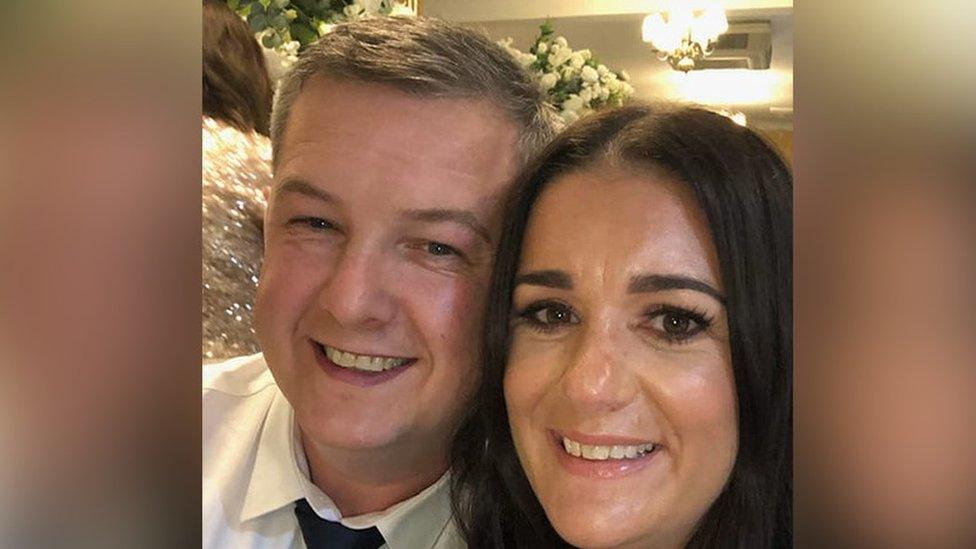
- Published18 November 2021
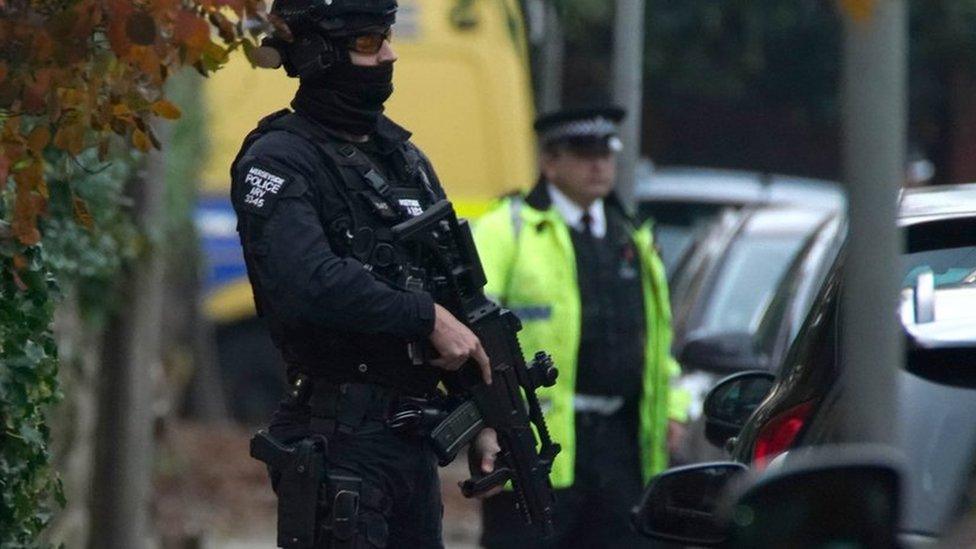
- Published18 November 2021

- Published17 November 2021

- Published16 November 2021

- Published15 November 2021
